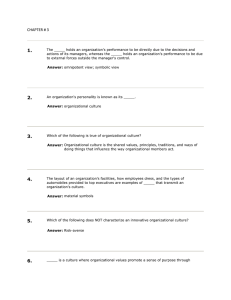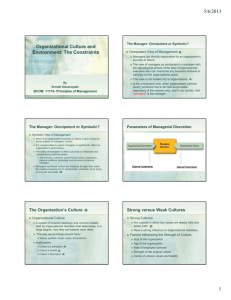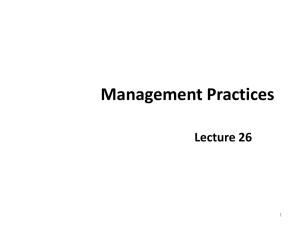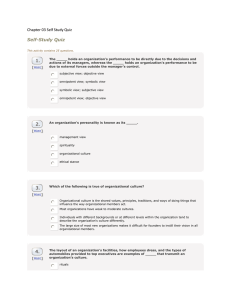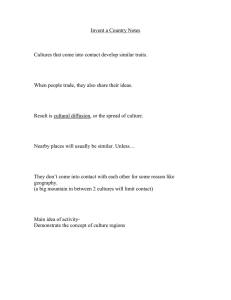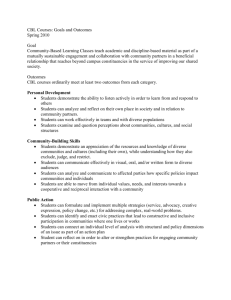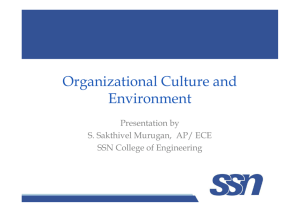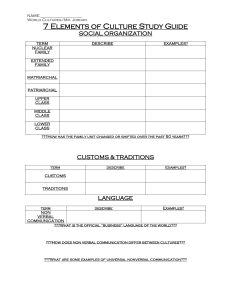KEY TERMS – CHAPTER 3
advertisement
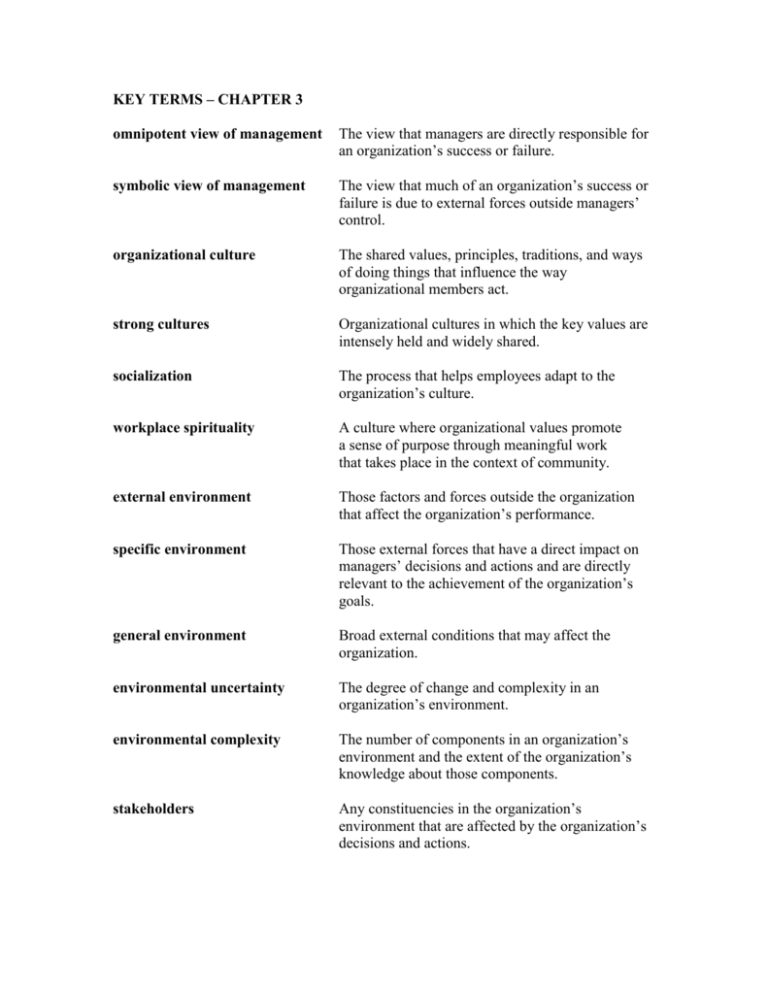
KEY TERMS – CHAPTER 3 omnipotent view of management The view that managers are directly responsible for an organization’s success or failure. symbolic view of management The view that much of an organization’s success or failure is due to external forces outside managers’ control. organizational culture The shared values, principles, traditions, and ways of doing things that influence the way organizational members act. strong cultures Organizational cultures in which the key values are intensely held and widely shared. socialization The process that helps employees adapt to the organization’s culture. workplace spirituality A culture where organizational values promote a sense of purpose through meaningful work that takes place in the context of community. external environment Those factors and forces outside the organization that affect the organization’s performance. specific environment Those external forces that have a direct impact on managers’ decisions and actions and are directly relevant to the achievement of the organization’s goals. general environment Broad external conditions that may affect the organization. environmental uncertainty The degree of change and complexity in an organization’s environment. environmental complexity The number of components in an organization’s environment and the extent of the organization’s knowledge about those components. stakeholders Any constituencies in the organization’s environment that are affected by the organization’s decisions and actions.
